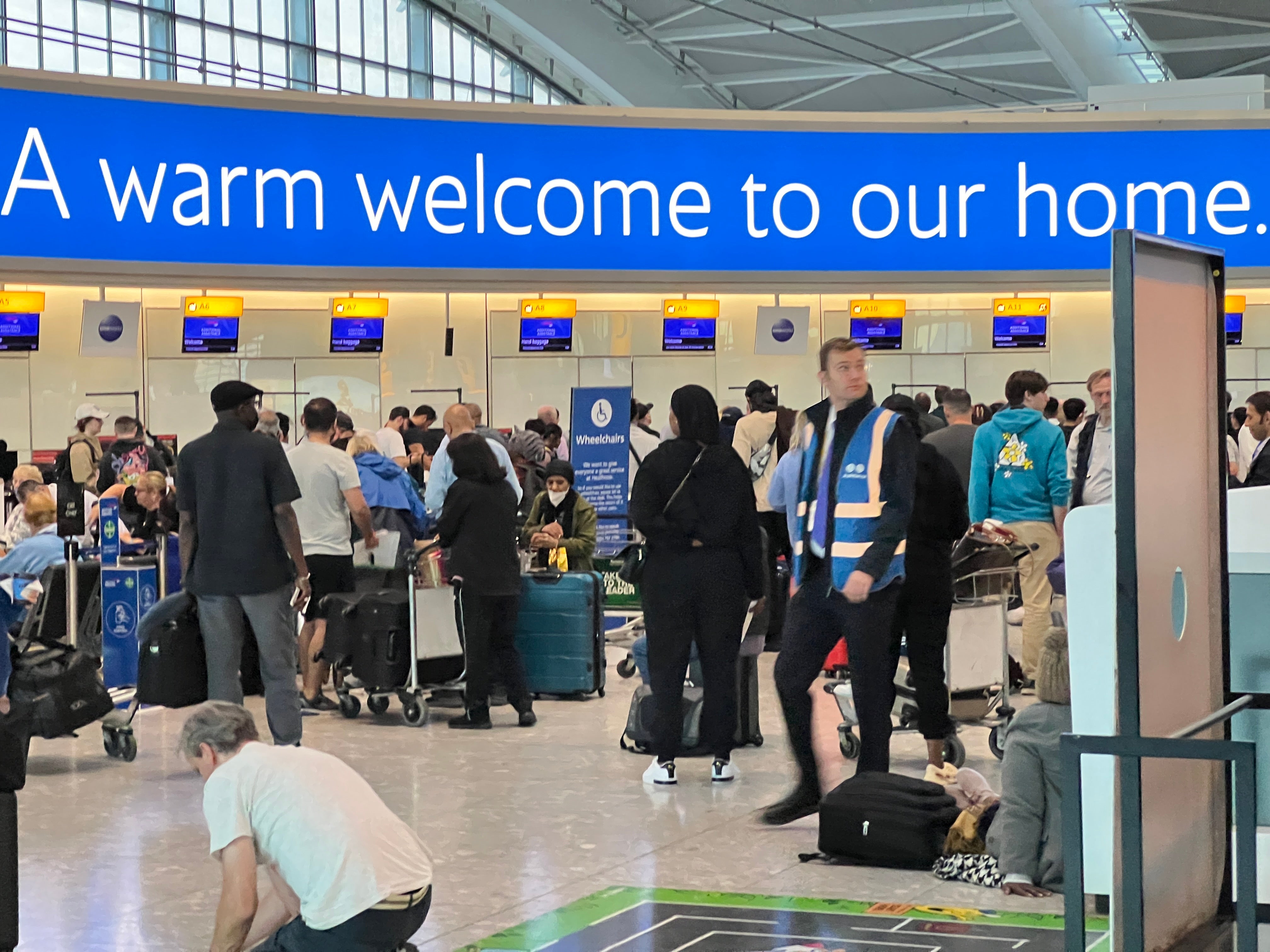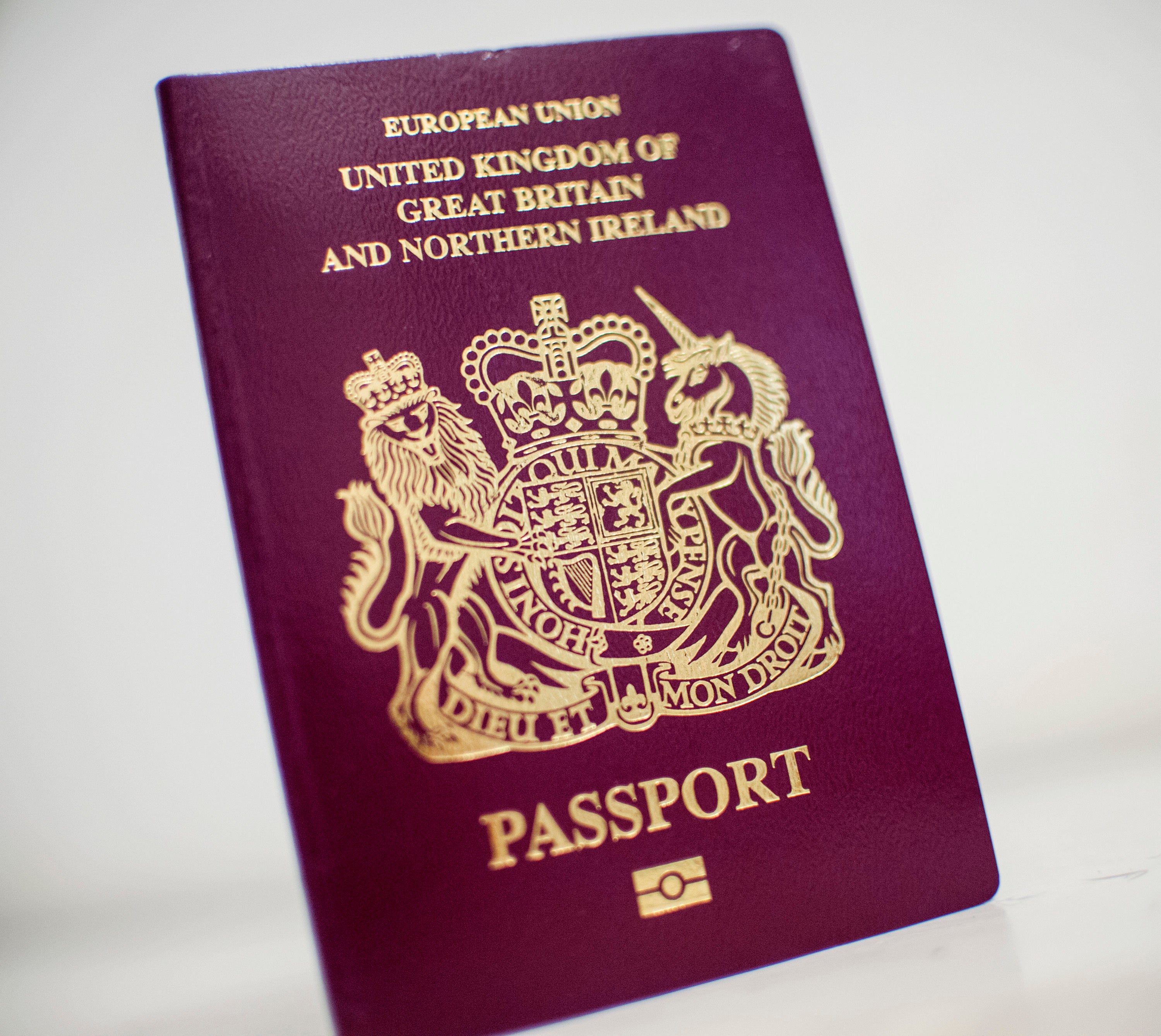Will easyJet pay the extra cost of my journey home?
Simon Calder answers your queries on easyJet’s liability, the Schengen area, electronic travel authorisation and the entry-exit system


Q My easyJet flight from Krakow to Gatwick was delayed by 2h30m. We landed as the first stage of my booked train journey home to Poole was leaving. I had allowed two hours’ leeway. At the airport railway station I was told that my £13.50 advance ticket was limited to the specified train and I had to spend £55 on a new one. The main delay was because a standby pilot had to be called out for the outward flight from Gatwick to Krakow. Surely my loss was easyJet’s fault?
Jill N
A You allowed a reasonable amount of time between your expected arrival and the train’s departure time. The cause looks squarely down to easyJet. But I am sorry to say that even the most polite request for reimbursement of your loss will be turned down (I hope equally politely) by the airline.
Over the summer – and in particular the last five days – disruption has been so severe that a 150-minute delay like yours is actually a good result. Ten days ago I was surprised and delighted that an easyJet flight from Gatwick departed on schedule and arrived in Nice on time. On Sunday and Monday easyJet grounded at least 80 flights as a result of staff shortage in the control tower at Gatwick airport. That was clearly beyond the airline’s control – unlike your delay.
Had the plane been at least three hours late arriving at the gate at Gatwick, you would have had a good chance of £220 in compensation from easyJet. While the airline would doubtless blame some combination of bad weather and air-traffic control hold-ups, the delay in replacing the original pilot cannot be cited as an “extraordinary circumstance”. All of which is academic, of course.
Air passenger rights rules on compensation are absurd, with a “cliff edge” approach that means all delays under three hours get zero, while anyone arriving later – whether three hours or 33 behind schedule – gets some cash. After Brexit, the UK government could have aligned compensation with the extent of the delay and the fare paid, as train operators do. But ministers chose not to, and so we are stuck with a system that is not fit for purpose.
Next time, you might want to choose a National Express coach; the company is much more forgiving of flight delays.

Q As a retired person I am spending my time travelling. I’m rapidly running out of the pesky “Schengen days” so need to find somewhere outside the Schengen area that is relatively warm and cheap for January/February. Any suggestions?
S L Rhodes
A Brexit really does keep on giving, doesn’t it? The decision to leave the European Union was followed by the UK securing its status as a “third country”, alongside Paraguay and East Timor, thereby making British travellers subject to all kinds of red tape. For people like you with plenty of time to spare, one of the most onerous restrictions is the limit of spending no more than 90 days in any 180 days in the Schengen area. Were you fortunate enough to be in Spain, Italy or Greece from the start of October, you would need to leave just before New Year and could not return to anywhere in the zone until late March.
However, there are some very appealing alternatives – starting with the one Mediterranean European Union member state that is not in the Schengen area. Cyprus has some of the same rules as the Schengen area, such as passports not being older than 10 years on the day of entry, and having at least three months remaining on the day of departure.
But it has its own entirely independent 90/180-day allowance. So you could cheerfully depart from Athens to Paphos or Larnaca on day 90 (30 December in my example) and stay there until 29 March.
For economy, though, let me steer you towards North Africa. Morocco and Tunisia are both cheap and easy to reach, and offer low living costs. While the weather will not be unrelentingly warm and sunny (especially on Morocco’s Atlantic coast), both nations have plenty of interest and would be great places to escape winter. Warmth will be guaranteed in Egypt. It is more expensive to reach but, over the course of a two-month stay, that disadvantage will fade. You could simply head for the beachside charms of Hurghada or Sharm el-Sheikh, but I recommend the Nile: either beautiful Luxor – steeped in history – or Aswan, even closer to the equator. Apply for an e-visa before you travel to Egypt, and you should be allowed in for up to three months.

Q I have seen your extensive coverage of the electronic travel authorisation [ETA] and in particular the calculation that 4 million transit passengers could forsake London Heathrow. Can you spell out just a bit more why this is a bad thing? What are the benefits to the UK of having transit passengers passing through Heathrow?
Stephen E
A A reminder that, from April 2025, all non-British and non-Irish transit passengers at London Heathrow will need to apply for a UK ETA in order to change planes, even though they intend to remain “airside” at the airport. Other hubs, such as Amsterdam, Frankfurt and Paris CDG, have no such rule.
I calculate that one in six existing transit travellers could be deterred by the ETA requirement. While transit passengers may only buy a coffee between flights at Heathrow, they bring a key benefit to UK travellers. The business models of British Airways, Virgin Atlantic and other airlines depend on being able to tap into a supply of passengers who transfer between flights at London Heathrow.
Airlines like to fly passengers “point to point” – such as London Heathrow to New York JFK – because they earn premium fares offering non-stop links. For example, tomorrow the cheapest British Airways return flight from London to New York for a week is £732. But if you add on a connecting flight from, say, Lisbon, the fare falls by over £100 – even though you are getting more flying for your money.
On the rare occasions when demand is strong enough to fill a plane just with passengers seeking to travel from London to New York, these connecting deals will vanish. But most of the time, BA – and other carriers – rely on a flow of transit travellers to fill their seats. They can turn the tap up or down, depending on how well direct flights are selling.
A number of routes and frequencies are viable only because of the volume of connecting passengers. Take out one in six of these travellers – which is my calculation of the deterrent effect of the ETA requirement so far – and some marginal services could be cut. Of course, airlines can and will respond to any fall in bookings: cutting connecting fares more deeply, or offering stopover packages. So it remains to be seen how much damage will be done. But fewer flights and higher fares for UK passengers is a clear possibility.

Q How will the EU’s entry-exit system [EES] dovetail with previous stamps in one’s passport? In short, will visits pre-EES be set aside and we restart on a one-off, all-new counting system using biometrics?
Philip D
A The entry-exit system for the European Union (except Ireland and Cyprus) and the wider Schengen area is due to take effect on 10 November. The aim is to improve border security and management. One immediate benefit for the authorities will be to record ins and outs across the Schengen border on a central database. It will be much easier to identify any transgressions of the maximum stay rule of 90 days in any 180 days. But what to do about those of us who have passport stamps showing when and where we entered or left the Schengen area?
With all the added pressure on the frontier officials of capturing biometrics, I imagined the most plausible scenario would be as you postulate: wiping the slate clean with a kind of amnesty, and starting from zero. But I was wrong.
It took some weeks to get a definitive answer from the European Commission in Brussels, but eventually, a spokesperson told me that the current rules will continue to apply: “From the day the EES starts operations and at least for a period of 180 days, the border authorities will check the stamps in the third-country nationals’ travel documents and the EES data to ensure they have not overstayed. If someone entered before the EES started operations and leaves afterwards, an exit record will be created using the entry stamp affixed in the passport upon entry.”
To summarise: once the EES starts, officials will still be required to check the stamps and detect overstaying. Looking back through your stamps will become unnecessary beyond 180 days (six months) after the EES begins. And if you happen to be in the EU when the EES begins, you will leave “digitally” (with your details supplied to the central database) and the border guard will identify from the stamps in your passport when you entered. This stay will be the first on your electronic record.
Email your question to s@hols.tv or tweet @SimonCalder
Join our commenting forum
Join thought-provoking conversations, follow other Independent readers and see their replies
Comments
Bookmark popover
Removed from bookmarks